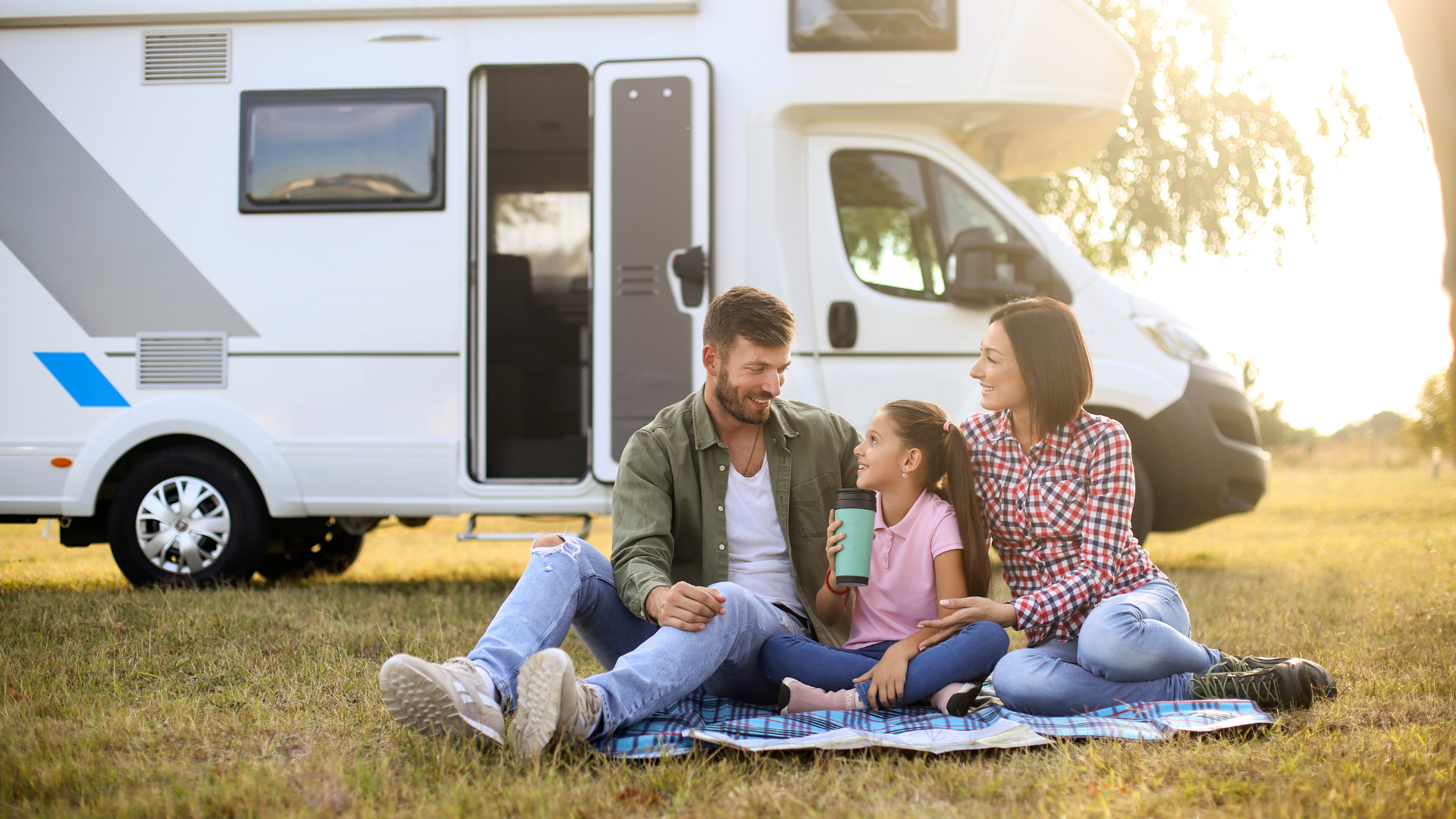There’s a growing trend of people choosing to live a greener lifestyle by living in an RV. If you’re thinking about making the switch to RV living, there are a few things you need to know first. In this article, we’ll provide a breakdown of all the pros and cons of living in an RV, as well as give you tips on how to make the transition as smooth as possible.
So whether you’re considering it for your next trip or your permanent residence, read on for everything you need to know!
How to Start an RV Life
RV living can be an environmentally friendly way to live. These versatile vehicles can be constructed and furnished with recycled materials, and can even be made more energy efficient with the help of factory installed solar panels. These may also be easy to come by as you can source them locally, depending on where you live. So, it is evident that there are many advantages to transitioning into an RV lifestyle.
This transition, however, may not be a quick and easy process for you as it often comes with the task of downsizing and selling your home, which can be extensive. Fortunately, it can be cut short when you sell your home directly to property purchase companies. These businesses tend to advertise with tags like “Sell your home fast” or “We buy houses Fast”. Take, for example, a company like TX Cash Home Buyers. You can click here to visit their site, where you may find quotes for your home by entering its details. By getting in touch with such agencies, you can fast-track your home sale, and move on to the next step, which is an RV purchase.
Now, there are a few things you need to keep in mind when buying an RV. So, here are some tips for starting a green RV life:
- Choose a fuel-efficient vehicle. The less fuel you use, the less pollution you create.
- Use solar power if possible. Solar panels provide electricity for your RV while you’re parked and while on the road, so you can avoid using dirty electricity from generators or commutes to the grid.
- Consider recycling materials when you have the opportunity. Recycling reduces the amount of waste going into landfills and creates new materials that can be used again and again instead of ending up in our oceans or creating dangerous greenhouse gases like carbon dioxide (CO2).
- Cut down on energy consumption, when possible, by turning off lights when you leave a room, closing curtains during daylight hours, and turning off appliances when not in use – especially televisions, and computers
What are the Benefits of RV Living?
The benefits of RV living are many and varied. Here are just a few:
- Reduced impact on the environment – RVs produce far less pollution than traditional living arrangements, thanks to their low emissions standards and fuel efficiency.
- Less stress – With no mortgage or rental debt to worry about, you can take your time exploring new places without feeling rushed.
- More flexibility – You can live in your RV as long or short-term as you like, without having to worry about finding a new place to live every time you want to vacation or travel.
- More independence – No need for property maintenance or yard work! Your RV will take care of itself while you’re away.
- Increased safety – Since an RV is self-contained, it’s much safer than staying in an apartment or house if something goes wrong.
- Cost savings – Unless you’re using your RV for full-time living, you’ll likely save money on your housing costs by living in an RV.
- Increased enjoyment of life – When you live in an RV, you can truly enjoy the simple things in life – like taking a walk outside, enjoying a warm cup of coffee on the front porch, or cooking a meal over the campfire.
Foods and Supplies for an RV Lifestyle
When you live full-time in an RV, there are a few things you need to be aware of when it comes to food and supplies. In this article, we’ll outline some foods and supplies that will help make your RV lifestyle more sustainable.
Food:
First and foremost, you’ll need food! That means fresh produce, meat, dairy products, and other items. Keep in mind that not all foods are appropriate for an RV lifestyle. For example, canned goods are usually not the best option because they’re often packed with unhealthy chemicals. Instead, try to stick to fresh or frozen options whenever possible.
Another consideration when it comes to food is wastefulness. Unless you’re living off the grid or camping on state land without permits, you’re going to generate garbage while living in an RV. Make sure to pack as much reusable material as possible when packing your vehicle for travel. This includes containers for leftovers, packaging materials like bubble wrap and aluminum foil, and even compostable materials like coffee grounds and eggshells.
Supplies:
Next on the list of essential supplies are water storage and filtration systems. If you’re traversing areas with questionable water sources, it’s important to have a water filter system (you can explore various options at https://thechambersrv.com/best/rv-water-filter/) that can handle all types of contaminants. Also, be sure to bring plenty of water bottles so that you don’t have to spend money every time you want a drink or need to filter water for cooking.
When it comes to cleaning supplies, you’ll need everything from a good scrub brush to a bucket and spade. Be sure to pack plenty of disinfectants and sanitizers so that you can keep your RV clean and free from harmful bacteria.
Other essential supplies for an RV lifestyle include awnings and tents, storage containers, a generator, and a portable stove. Awnings provide shade and protection from the elements, while tents provide a space to sleep and relax. When planning for storage during your travels, opt for reusable containers to pack essential items like pots, pans, cups, plates, and silverware. These containers not only serve as efficient storage solutions but are also environmentally friendly. To ensure you have the means to cook meals on the go, include a portable stove in your travel gear. The convenience of a portable stove allows you to prepare your own meals, adding flexibility to your travel plans. Finally, when relying on a portable stove, considering fuel options is crucial. Many portable stoves use propane as a fuel source, offering efficient and reliable energy for your cooking needs. It’s advisable to plan ahead and ensure you have an adequate propane supply by establishing a connection with a reliable supplier for Propane Refill. This way, you can enjoy the convenience of cooking on the go without worrying about running out of fuel.
Tips for a Successful RV Lifestyle
- Plan your lifestyle ahead of time. Make sure you have researched all the necessary aspects of RV living, including where to park and hike in your area, what kind of water and electrical hookups are available, how to dispose of waste properly, etc. This will save you time and hassle down the road.
- Be mindful of your energy consumption. When living in an RV, it’s important to be mindful of your energy consumption. For example, make sure you’re using LED light bulbs and turning off electronics when not in use.
- Consider investing in a green power source. If you’re looking for ways to reduce your environmental impact while living in an RV, consider investing in a green power source like solar panels or wind turbines.
- Conserving water is essential when living in an RV. Make sure you’re using efficient toilets and showering sparingly (only when necessary). And if possible, try to find areas with plentiful water resources – like reservoirs – so you don’t have to worry about running out on the road.
Concerns about an RV Life
RVs are known for their convenience, but some people are concerned about the environmental impact of living in an RV. Here are five concerns about living in an RV:
- The amount of fuel used to travel in an RV is significantly more than driving a car. An RV uses between three and six times as much gasoline as a car, and diesel fuel is even more harmful to the environment.
- There is no escaping the emissions from an RV. Even when the motor is off, an RV still emits pollutants like nitrogen dioxide and particulate matter.
- RVs can damage ecosystems by leaving behind trash and debris. Not to mention, they can damage water resources with their high-water consumption rates.
- RVs can be very disruptive to communities where they’re parked. They often block streets and create noise pollution that disturbs residents’ peace.
- The life cycle of a typical RV is short-lived, and it’s not uncommon for them to end up in landfills after only a few years of use. This means that not only does the RV produce pollution while it’s being used, but it also contributes to landfill waste problems down the line.
If you’re thinking about living an RV lifestyle, there are a few things to keep in mind. First of all, make sure your rig is ready for the road by checking its brakes, tires, and fluids. Second, be aware of the environmental consequences of living in an RV – from using water wisely to disposing of waste properly.
Finally, remember that it’s important to take care of your physical health while living this way as well. Make time each day for fitness and relaxation – both crucial components of a healthy RV life!





